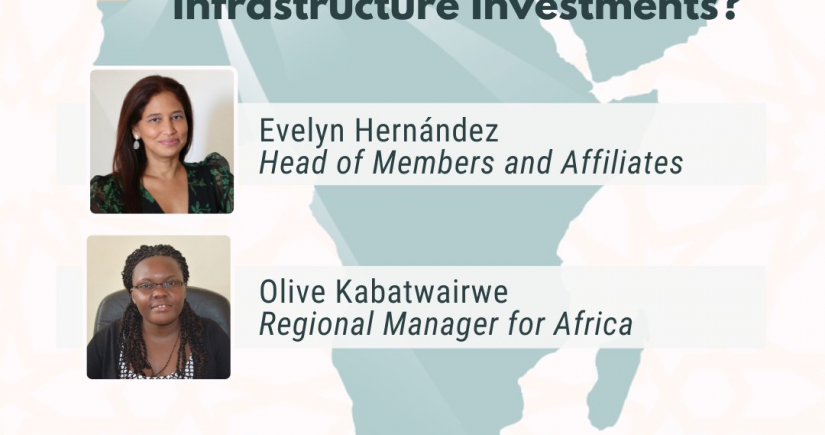CoST International hosted a session to discuss “Who benefits from infrastructure investments?” during the Africa and Middle East OGP regional meeting held in Morocco on 1st November 2022. The session that attracted 49 participants, was comprised of panelists from Open Ownership, Extractives Industry Transparency Initiative (EITI), Private Sector representatives and Government of Ghana and was moderated by the CoST International Africa Regional Manager, Olive Kabatwairwe.
During this session, we discussed Beneficial Ownership Transparency.
As we discussed Beneficial Ownership Transparency, Rueben Lifuka, a former CoST Zambia Multi-stakeholder Group Member and Transparency International vice chair noted “The Panama papers revealed that many of the anonymous companies owned by 50 heads of states were from Africa. Capital flight is an issue, but also cost inflation for the wrong reasons – kickbacks and other activities. However, the constraint remains with capacity gaps and limited awareness raising, as well as weak legal and policy frameworks across most countries. It is therefore, critical that beneficial ownership data is published to facilitate public scrutiny, and appreciation of where the investments are going.”
Sharing lessons from Open Ownership’s work, Ms. Favour Ime noted that, disclosed BOT data in Ghana revealed that, fumigation contracts were issued to eleven companies that were owned by one company (Jospong). In Zimbabwe, health minister Obediah Moyo was fired in July 2020 after he was accused of illegally awarding a multimillion-dollar contract, which inflated the cost of medical equipment. In Kenya, the country’s Ethics and Anti-Corruption Commission (EACC) initiated investigations into allegations of graft over the procurement and supply of COVID-19 equipment by the Kenya Medical Supplies Authority (KEMSA). Disclosure of BO data would help resolve some of these inconsistencies in the procurement of government services and supplies.
Speaking in the place of Hon. Yaw Osafo Maafo, Ms. Mary Awelana Addah from the Ghana Integrity Initiative noted that Ghana’s journey in implementing BOT found its roots in the Inter- Governmental Action Group against Money Laundering in West Africa (GIABA) Peer Review (2012) and then went through EITI. Ghana’s progress was influenced by an international commitment on BOT to comply with. This resulted in the New Companies Act (2019 ACT 992). Although, there has been a slow growth towards an open register, Ghana prides herself on the ability to involve key stakeholders such as CSOs, and journalists in their BO model Ghana is working towards automating and publishing their BO register which is currently being accessed reactively.
On their end, the Extractives Industries Transparency Initiative (EITI) has been at the fore front of implementing BOT in the extractives sector. Edwin Wuadom Warden from the EITI pointed out examples from the Malibu scandal in Nigeria, where a politician got the oil contract for a major block and then sold it to Shell and NI at a massive markup. Edwin pointed out that implementing BOT in the extractives sector has not been a walk way, there has been limited awareness of BOT and this has vastly impacted BOT implementation.
The session provided a platform for stakeholders to share experiences and way forward on implementation of BOT in the infrastructure sector. From the session, stakeholders agreed that;
- There are weak or no legal and policy frameworks, systems and processes for delivering Beneficial Ownership (BO) in the infrastructure sector. Implementing BO is a process that requires deliberate efforts and step by step engagement with stakeholders.
- With the increased demand for infrastructure investments, participants had a consensus that beneficial ownership can help end the use of anonymous companies linked to corruption and mismanagement in infrastructure procurement.
- Multi-stakeholder working, capacity building, addressing inclusion issues and harmonization of disclosure standards are critical in realising BO transparency.
As a way forward, participants agreed that the following actions are necessary:
- Use the Multi-stakeholder approach, promote and advocate for adoption of BO
- Support integration and harmonization of open data standards with BO requirements
- Increase training and awareness raising on BO transparency
- Automate and disclose BO registrars alongside with infrastructure project data to understand who is benefiting from this sector public investments.
The CoST Team interacted with potential CoST member countries including Nigeria and Kenya. The two countries expressed strong interest and readiness to implement the CoST approach in their respective countries as a solution to the realisation of quality infrastructure, stronger economies and better lives.
“We really need support, we have invested a lot of funds in infrastructure development” Would be good to take stock of what has been done, and publish it for citizens to understand it and use it to influence better service delivery” Commissioner from Kaduna State, Nigeria.
“I wonder why Kenya has not joined CoST, given the value and level of investments we have made in the infrastructure sector. Kenya needs CoST. There is an ongoing process to review our procurement system the Methodology for Assessing Public Procurement System (MAPS) and CoST would suit under this process as a strong reform in improving procurement and implementation of public infrastructure projects in the country” Director General, Public Procurement Regulatory Authority (PPRA).
